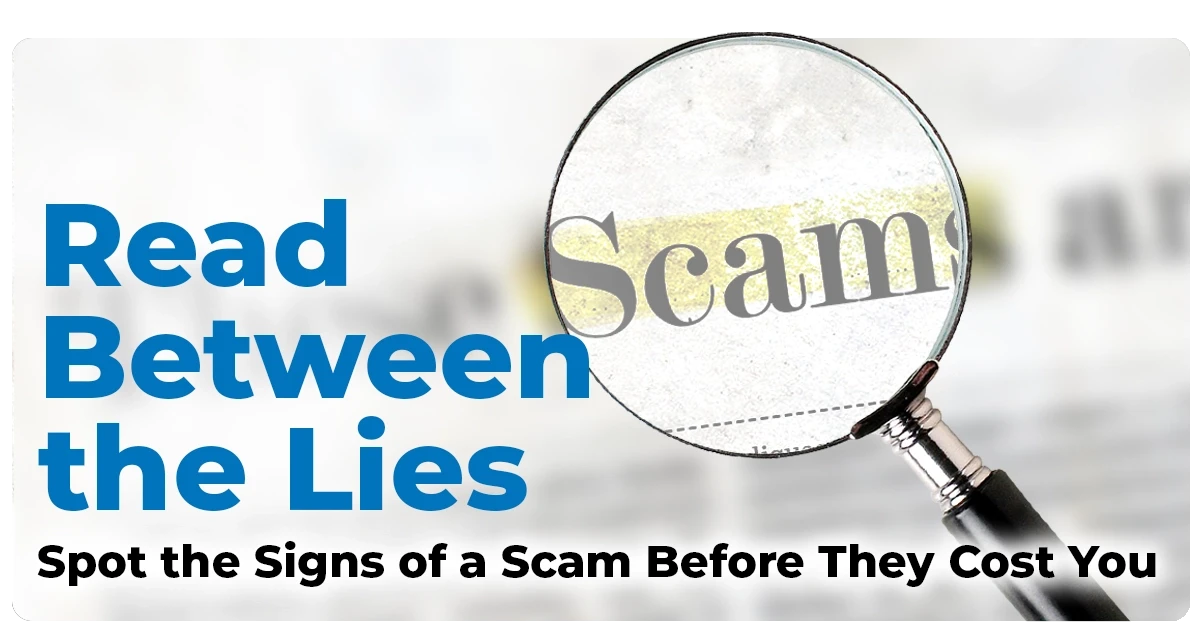June is National Elder Abuse Awareness Month, a time to shine a light on the many forms of mistreatment older adults face. While physical abuse and neglect often take center stage, financial exploitation through scams quietly impacts millions each year. These scams not only drain savings and assets, but also weaken the protections meant to keep older adults safe, especially when they prey on the very systems designed to protect them.
Older adults are frequently targeted by scammers, with Medicare scams preying on trust and the confusion that can come with a complex healthcare system. Medicare is the US government health insurance program for people aged 65 and older. In 2024 alone, the Centers for Medicare & Medicaid Services (CMS) reported an estimated $31.7 billion in improper payments. While not all of it was fraud, a significant portion involved deceptive billing, fake services, and stolen identities – and many of these cases started with a simple phone call.
If you or someone you care about is on Medicare, knowing how to spot the warning signs of Medicare scams can help protect personal information before real damage is done.
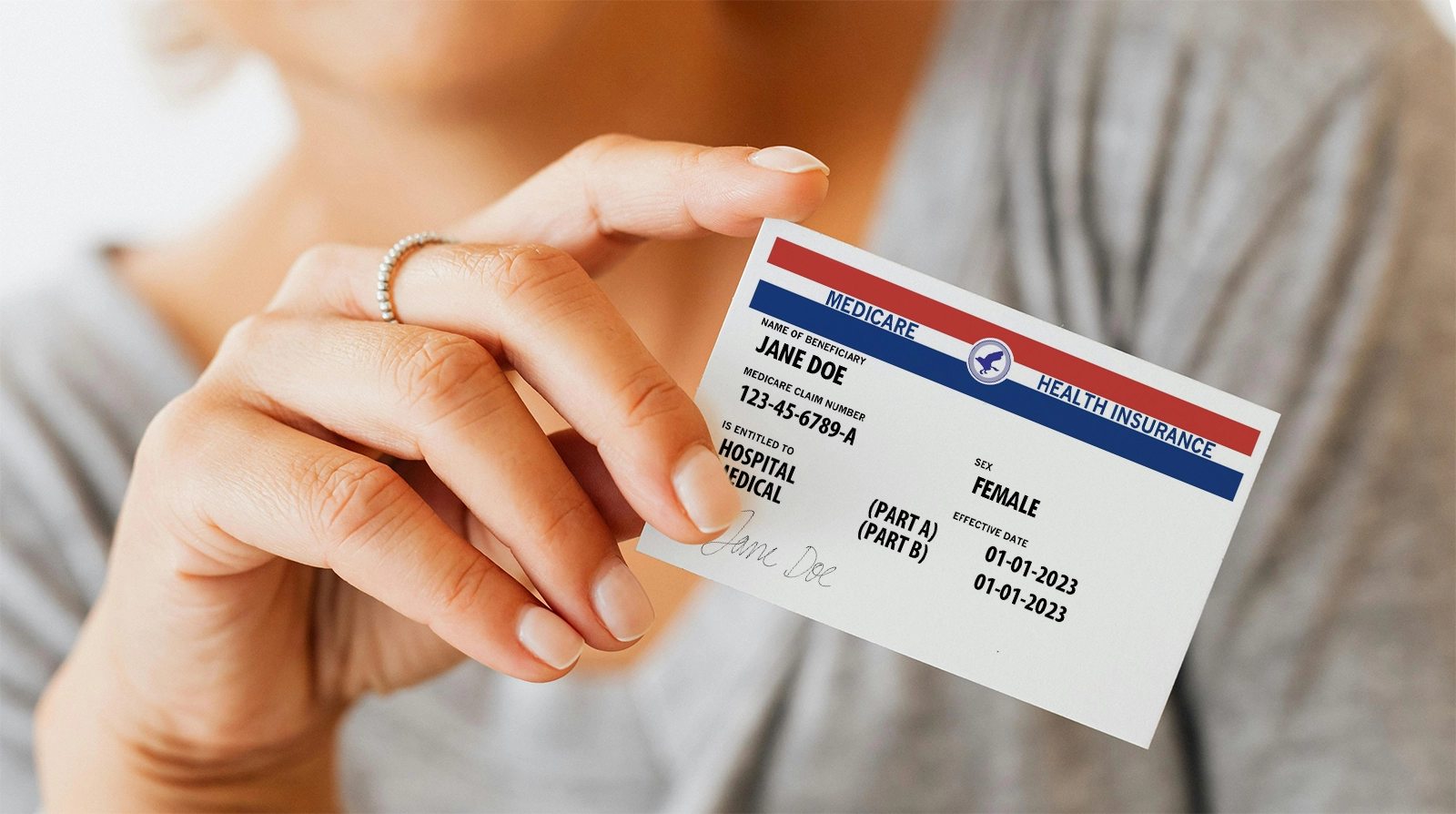
Scam vs. Fraud: What's the Difference?
We often hear the terms “scam” and “fraud” used interchangeably. They’re closely related but not quite the same. When it comes to Medicare, understanding the difference is important.
A Medicare scam is the setup. It’s what happens directly to the victim. A scammer targets a person and manipulates them into giving up personal information.
Medicare fraud is the payoff. It’s what happens with the victim’s information. The scammer and their partners use the victim’s information to submit false claims to steal money from the Medicare system, often without the victim even realizing it.
How do Medicare Scams Work?
Medicare scams often start with a phone call where a scammer pretends to be from Medicare, an insurance agent, or a healthcare provider. They might sound friendly and helpful, but what they really want is your Medicare number, Social Security number, or other personal information.
Scammers often:
Claim they are from Medicare, an insurance company, or some other health benefits provider
Offer additional benefits or free medical equipment “covered by Medicare”
Ask for your Medicare number and other personal information to “verify eligibility”
The goal of this scam is to get access to sensitive information like your Medicare number.
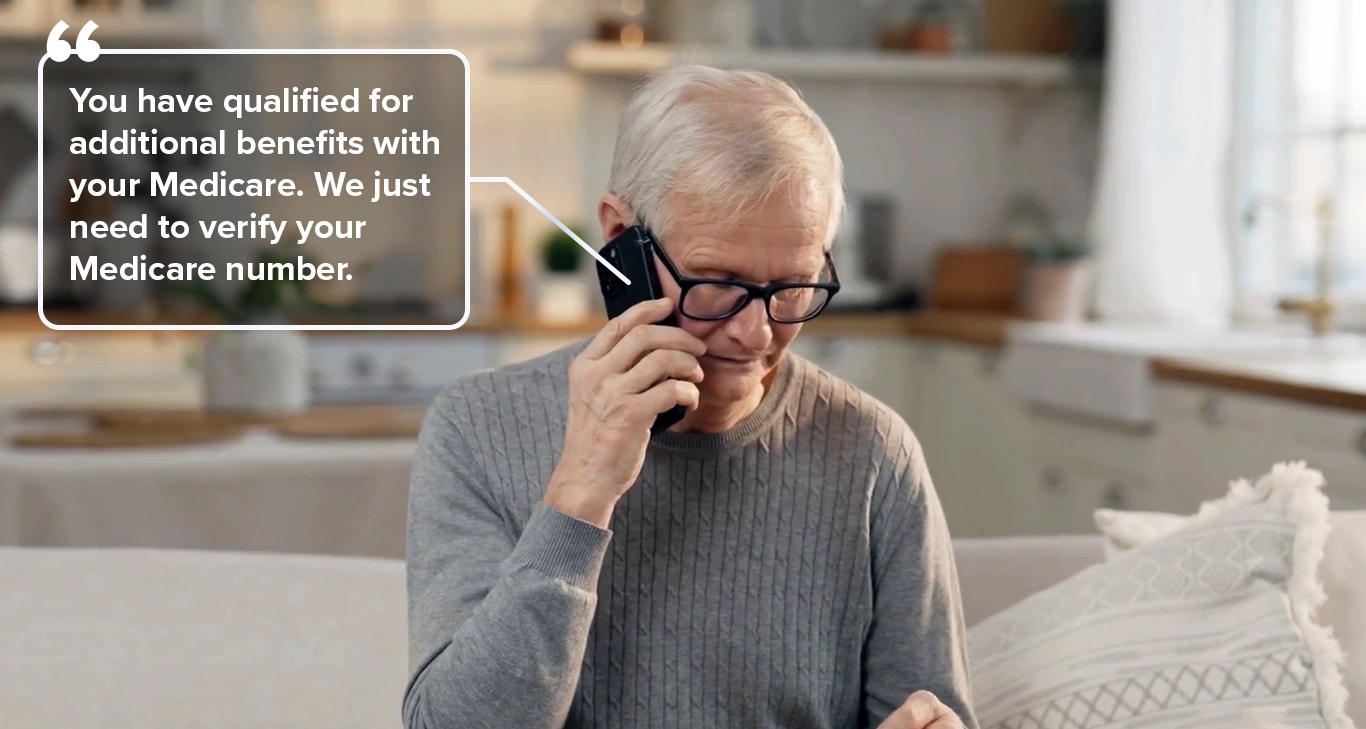
What Happens Next: The Scam-to-Fraud Pipeline
Once a scammer has your Medicare number, the real damage begins.
In short, Medicare scams are just the beginning, but Medicare fraud is the payoff and endgame. It’s what happens after the scam when scammers (or corrupt providers) use the information they’ve stolen to commit fraud, like billing Medicare for services you never received so they can get the reimbursement check, all in your name.
Medicare Fraud usually involves:
Submitting false claims to Medicare for services that were never provided
Billing for unnecessary medical equipment or drugs, even if the patient doesn’t need or want them
Using bribed or fake medical professionals to sign off on claims
Falsifying medical records and forging doctors’ signatures to justify charges

Why this matters for victims of Medicare scams
A quick phone call from a fake “Medicare representative” can snowball into months, even years, of problems. These scams not only cost the system billions of dollars, but they can put the victim at risk. A compromised Medicare number can lead to long-term consequences and have a direct impact on the victim’s healthcare and their medical records.
Receiving healthcare from a fraudulent provider can mean the quality of care is poor, medically unnecessary, or worse, actually harmful. Victims may also face denial of necessary care (for example, if a service has limits and Medicare believes it has already been provided, they will deny coverage).
Many victims don’t even realize their information has been used fraudulently until months later when:
They receive surprise bills for care or services they never requested
Their coverage is unexpectedly denied
They’re notified about medical treatments they didn’t receive
They receive medical equipment in the mail they didn’t request or want
Scammers can also turn around and sell Medicare numbers or personal information to other criminals, opening the door to identity theft or more fraud, all in the victim’s name.

Common Medicare Scam Tactics to Watch Out For
Medicare scammers will do and say anything to get your Medicare number or other personal information. Here are some of the most common Medicare-related scams happening today:
🚩Offering additional benefits at no cost. You may hear:
“You have qualified for additional benefits with your Medicare.”
“You can save money on your monthly co-pays, premiums, and prescriptions.”
“You’re not utilizing all your Medicare benefits.”
Medicare does NOT cold call to offer benefits. These calls are designed to get your Medicare number.
🚩Offering or sending free medical equipment
Victims are offered or sent medical equipment such as back and knee braces, diabetic monitors, wheelchairs, or urinary catheters, even if they don’t need them. These items often never arrive or are poor quality, and Medicare is billed thousands of dollars.
Medicare only covers durable medical equipment when it’s prescribed by your doctor for medical necessity. Some scammers have a doctor willing to sign orders despite never having met the patient.
🚩Offering Medicare card replacements. You may hear:
“Your Medicare card is expiring.”
“We’re issuing new cards with chips.”
“Your card must be replaced due to fraud.”
Medicare cards do not expire. You won’t get a replacement unless you request one yourself.
🚩Assistance with Medicare Open Enrollment. Scammers pose as a third-party “Medicare advisor” who “helps” with enrollment. You may hear:
“We are calling to update your profile for the year.”
“To make sure you qualify for the program, can you verify your age?”
“Open enrollment is coming and we want to make sure you’re not missing any benefits like dental, hearing, transportation, vision, drugs, and more without any cost to you.”
Medicare does not cold call for any reason including enrollment, to verify information, or for personal benefits updates.
🚩Door-to-Door Solicitations
Some scammers show up at your door pretending to offer wellness checks or free items on behalf of Medicare. These scammers often target retirement communities.
Medicare will never send representatives door-to-door – ever.
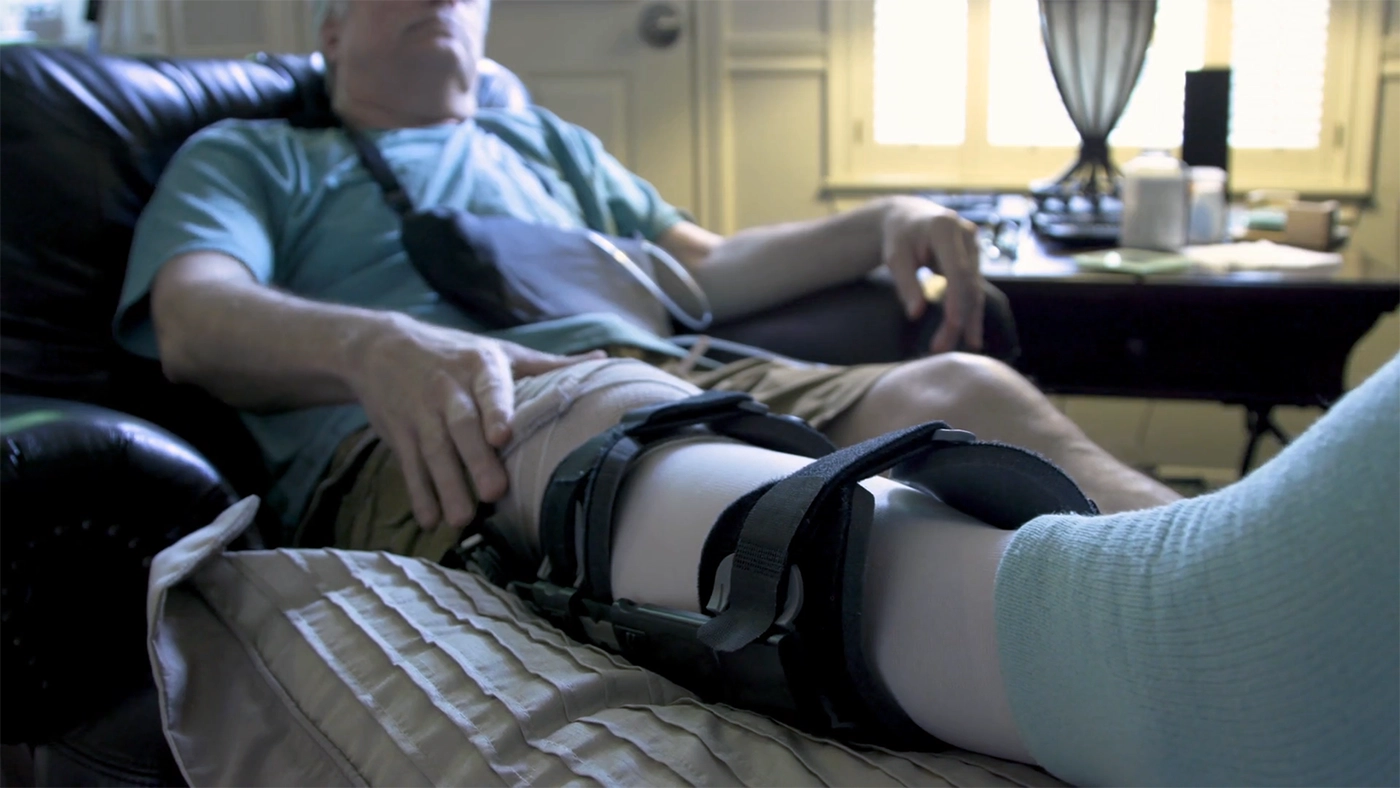
How to Protect Against Medicare Scams
Hang up on unsolicited calls claiming to be from Medicare or offering benefits. Medicare will only ever contact you by US mail. If the person on the other end of the line says they are calling from Medicare, disconnect the call immediately. If you think a call might be real, hang up and call 1-800-MEDICARE (1-800-633-4227) to check.
Don’t trust Caller ID. Medicare scammers can spoof caller ID to make it look like Medicare or a healthcare provider is calling.
Don’t share your Medicare number. Keep your Medicare card as private as a credit card – only share it with trusted medical professionals.
Check your Medicare Summary Notices (MSNs) regularly for unfamiliar charges or services.
Ask your doctor directly if someone recommends medical services or equipment you are unsure about.

If You Think You’ve Been Targeted
If you have shared your Medicare number by phone or online or believe your Medicare number has been compromised in any way, or if you see suspicious charges on your Medicare statements, don’t wait.
Contact your local Senior Medicare Patrol (SMP). They can help you:
Identify and report Medicare fraud
Review confusing or suspicious billing statements
Take action to protect your health and finances.
Find your local SMP at www.smpresource.org or by calling 1-877-808-2468
Ending the Cycle of Financial Exploitation
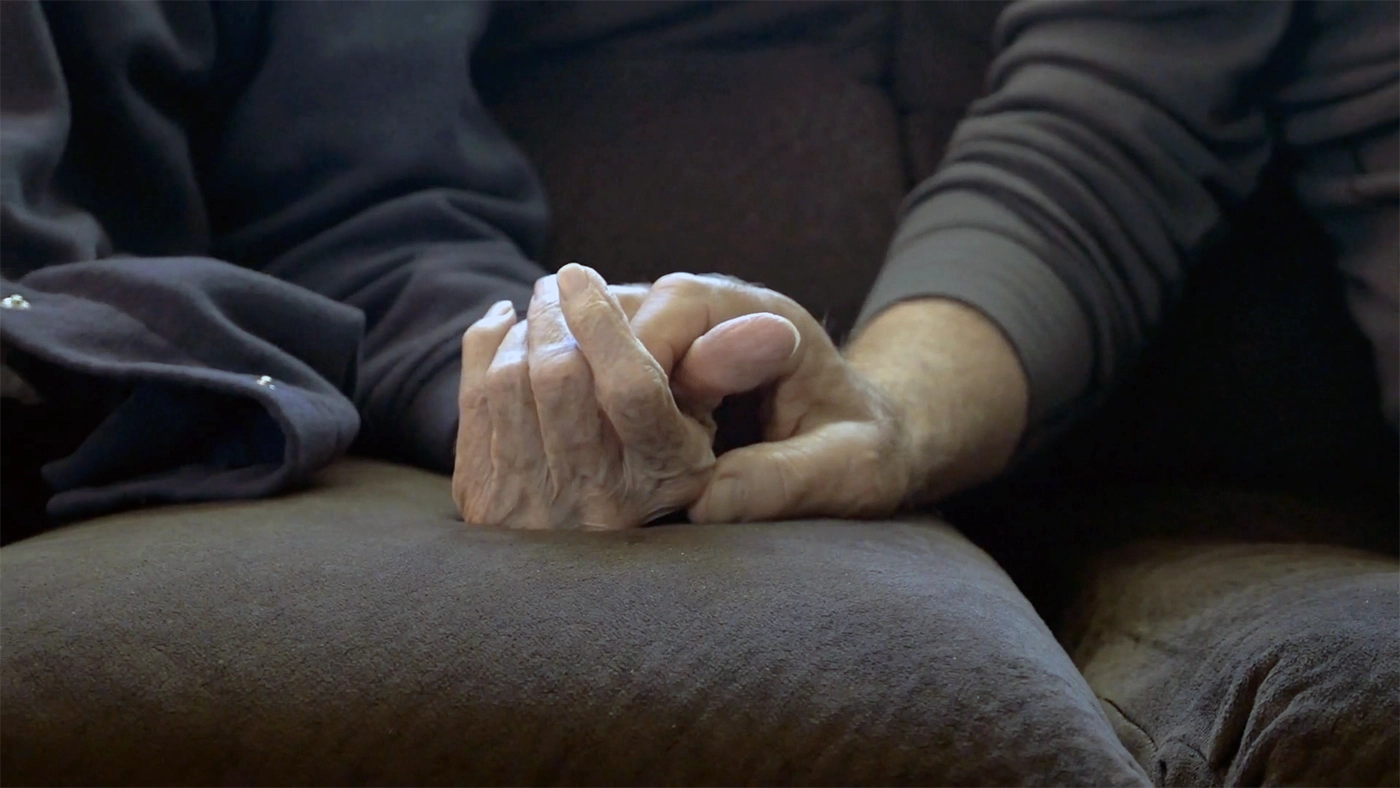
Medicare scams and fraud don’t just cheat the system, they hurt real people. These scams exploit trust, jeopardize health, and leave victims with serious and long-lasting consequences. Once scammers compromise a person’s information, they often strike again and again, putting victims at risk of identity theft, denial of care, and emotional distress. This is elder abuse, and it often happens quietly and goes unreported.
Scammers count on people feeling confused, isolated, or too embarrassed to speak up. But the more we talk about scams, the harder it is for them to succeed. Whether you’re an older adult receiving Medicare, a caregiver, or just want to look out for loved ones, the best defense is knowledge.
Check in with loved ones, ask questions, and share what you know. Learn the red flags and know when to speak up – reporting suspected scams and fraud can prevent harm and help hold scammers accountable. A quick conversation could be what it takes to stop a scam before it starts.
– The Seraph Secure Team


